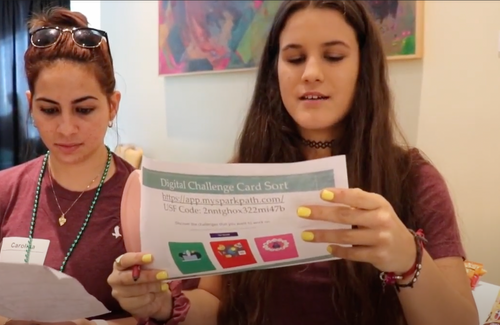Helping students find a purposeful career path and feel empowered in the career exploration process are top priorities at SparkPath. Beyond these important outcomes, we wanted to measure the short-term impact the Challenge mindset can have on students in secondary and post-secondary education. The two studies outlined below showcase some of the immediate benefits of learning the Challenge mindset.
The first study was conducted amongst 105 high school students in Ottawa, Canada (Fall 2018). Participants completed a questionnaire after attending a Challenge mindset workshop. Overall, the workshop had a positive impact on students by lowering anxiety and increasing feelings of career preparedness. For example, there was a 20% reduction in career-related anxiety and a 29% increase in the proportion of students who report they have ideas about what they want to do during their career.

The second study was conducted amongst students that attended the 2019 University of Florida's Major Expo. The event used the Challenge mindset to help undecided high school and college students chose a major of study. Over 400 students undertook the Challenge Cards sort prior to the event. During the expo, students were encouraged to ask tailored and meaningful questions such as "How can this major help me contribute to the challenge I care about?" while visiting booths that featured different academic majors.

After the event, participants were invited to answer a follow-up survey on their experience with the Challenge mindset. Based on 71 completed surveys, 84% of participants reported they agree or strongly agree that the Challenge mindset "opened up [their] world to new possibilities", and 82% were in agreement with the statement "I feel more inspired by what I can accomplish in my career". Almost all respondents (92%) indicated they enjoyed using the Challenge Cards.
These results are encouraging and help demonstrate the positive impact of the Challenge mindset on students' mental health and perception of career preparedness. Still, more research is needed to measure a broader range of outcomes and uncover the factors that drive the successful implementation of the Challenge mindset in secondary and post-secondary career education.



